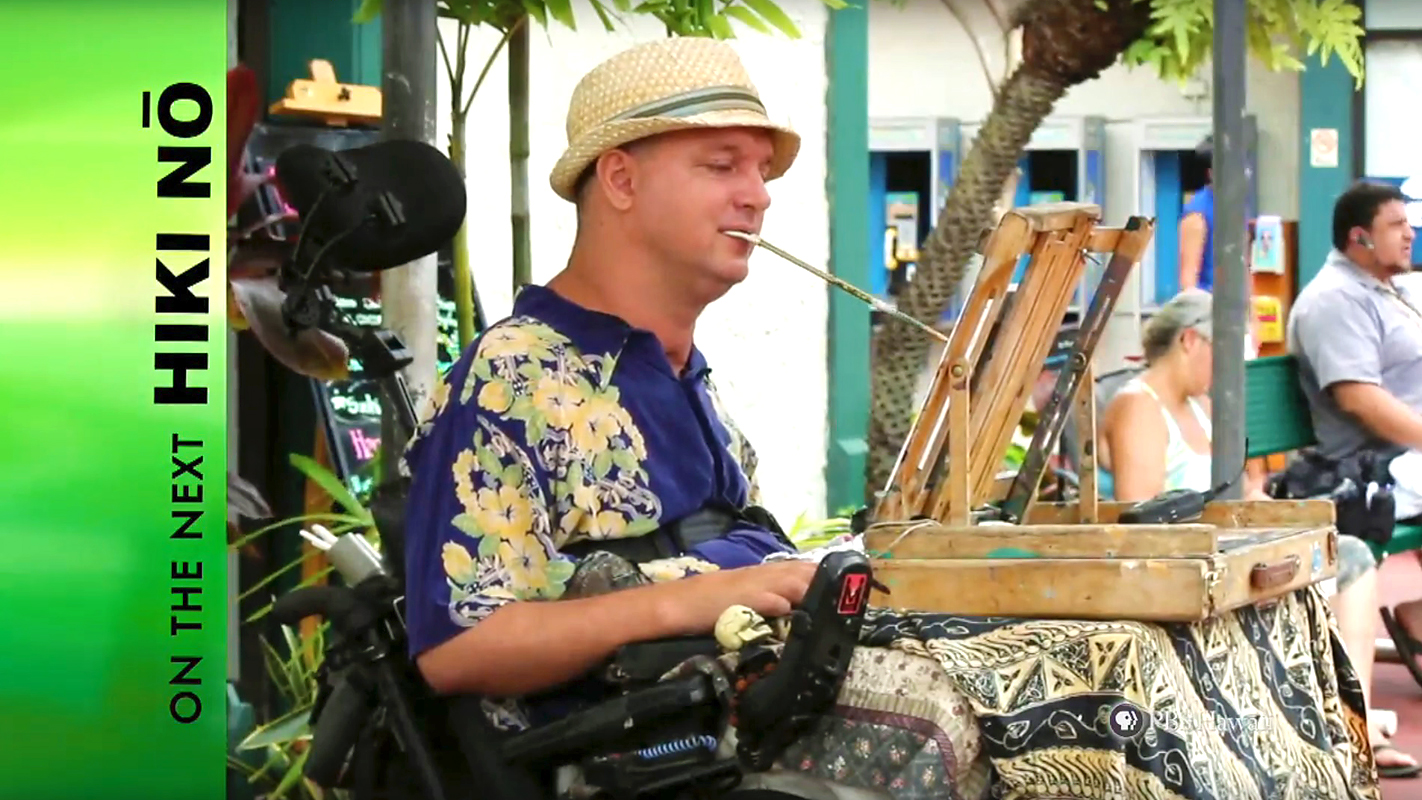This episode is a compilation of stories that express the six Hawaiian values featured in the first round of the 2015-16 season. Here are the Hawaiian values featured and the stories that represent them:
Ho’omau (to persevere, perpetuate or continue) is represented by a story from Maui High School, which follows former UH Wahine Volleyball star Cecilia Fernandez as she battles Adenocarcinoma, a rare form of lung cancer. As a former athlete, Cecilia is used to battling opponents by following a carefully devised game-plan. But because so little is known about this disease, Cecilia must persevere against an enemy she is not familiar with – uncertainty.
Kuleana (responsibility) is represented by a story from Waianae High School in West Oahu. Waianae High School graduate and UFC (Ultimate Fighting Championship) fighter Max Holloway feels it is his kuleana to represent the Waianae community in the most positive way possible when he competes. Max also takes his responsibilities to his wife and young son very seriously. Having been severely neglected by his own parents, Max wants to make sure his son does not have to suffer the same sort of childhood that he had.
Ha’aha’a (humbleness and humility) is represented by a story from Chiefess Kamakahelei Middle School on Kauai. Kauai resident Moses Hamilton learned humbleness and humility when he had to start all over again after a car accident that left him a quadriplegic. While undergoing rehab, Moses took up mouth painting (painting by holding and manipulating the paint brush in one’s mouth), and is a now a successful artist who sells his paintings in Hanalei.
‘Imi na’auao (enlightenment and wisdom) is represented by a story from Moanalua High School in the Salt Lake District of Oahu. Lars Mitsuda, Moanalua’s culinary arts teacher, who combines his passions for food and education by enlightening students on the many life-lessons cooking can teach. From multi-tasking to management skills, to business planning, to working with people – learning the culinary arts fosters a wisdom that students can use for the rest of their lives.
‘Ike Pono (to know what is right) is represented by a story from Maui Waena Intermediate School about Christopher Malik Cousins, owner of the Farmacy Health Bar in Wailuku, Maui. Cousins had been a troubled youth, often on the wrong side the law and even living on the streets. Being fed at Saint Theresa’s Church in Kihei eventually inspired him to do the right thing and open his own health food restaurant. He encourages his customers to “pay-it-forward” by contributing to a program that helps to feed the hungry with healthy foods.
Mālama (to care for, protect and maintain) is represented by a story from Aliamanu Middle School on Oahu, about the efforts of the National Oceanic and Atmospheric Administration (NOAA) and its community of volunteers to mālama the Hawaiian Monk Seal. Mālama is also represented by a video primer from Kauai High School on how to “take care” in the event of a hurricane.
This episode is hosted by HIKI NŌ alum (and current Political Science/ Communications double-major at UH Manoa) Shisa Kahaunaele.
This program encores Saturday, Jan. 7 at 12:00 pm and Sunday, Jan. 8 at 3:00 pm. You can also view HIKI NŌ episodes on our website, www.pbshawaii.org/hikino.

